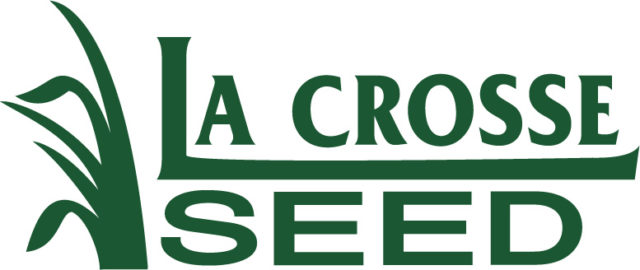In March 2016, researchers, policy makers and producers met in Tri-Cities, Washington to define priorities for future research and extension efforts. Their recently published white paper on the conference outcomes outlines current scientific understanding of climate impacts, vulnerabilities and opportunities to adapt in relation to cropping systems, livestock systems and decision support systems for producers. Beyond identifying areas identified for research, the committee discussed bridging the gap between climate change-related research and agricultural management.
Cropping priorities
What does a warmer climate mean for ag producers? There is good news and bad. Climate change may allow for earlier spring planting dates for some crops, although increased extreme weather events, such as late spring freezes, potentially expose crops to greater frost injury. Warmer, drier summers may increase fallowing for rain-fed areas that are currently cropped annually, which could increase erosion and decrease carbon sequestration. Warmer spring weather may also lead to earlier crop irrigation, increasing water demand.
Effects of warmer temperatures also impact quality issues, reducing chilling needed for some fruit and nut crops, potatoes and some grape varieties. Increased drought stress also impacts disease and insect vulnerability of many crops.
Based on the discussions, priorities for future research and extension efforts include:
- Establish credible estimates of carbon and nitrogen fluxes for Northwest agricultural systems to support innovation in and adoption of greenhouse gas (GHG) reduction strategies.
- Quantify under what conditions variable rate application and stabilized nitrogen fertilizers are most likely to decrease overall nitrogen use and where that reduction is enough to offset increased costs to support adoption of effective nitrogen management practices.
- Develop technical or other approaches to overcome existing barriers to integrating organic soil amendments more broadly in cropping systems, to support adoption of practices with substantial potential to increase carbon sequestration across the region.
- Quantify vulnerabilities associated with water supply – including drought frequency and severity, reductions in availability and changes in crop water demand – to support water-management decisions at multiple spatial and time scales.
- Quantify expected climate change impacts on crop quality and crop pests (weeds, diseases and insects), and evaluate strategies to address them, to support efforts to maintain quality of production.
Livestock priorities
While the Northwest will likely see less detrimental temperature impacts to livestock than other parts of the country, higher temperatures are nonetheless expected to reduce milk production by 0.4 percent by the end of the century. Hay production and quality may suffer through increased drought, and rangelands may become more susceptible to non-native species invasion and increased wildfire. Greater wildfire incidence may impact grazing productivity and carbon storage.
To address these concerns, the committee priorities for mitigation and adaptation in livestock systems include:
- Develop regional recommendations and decision support tools, and support ongoing educational efforts to encourage appropriate use of existing technologies to plan and manage manure nutrients, reduce GHG emissions and limit nutrient losses to soil, water and air.
- Develop cost reduction strategies and added value products that improve the economics for anaerobic digestion and manure nutrient recovery systems to support their adoption.
- Quantify the carbon storage potential of rangeland and pastureland soils, and evaluate best practices for enhancing soil carbon, to support adoption of carbon sequestration strategies.
- Quantify GHG emissions associated with specific types of livestock operations, and evaluate animal production system characteristics that lead to reduced emissions in the Northwest, to facilitate their adoption.
- Share information on the effectiveness and cost of short- and long-term strategies for coping with heat and water stress, as well as drought management planning, to support adaptation.
Decision support tools
Recognizing the need for an interdisciplinary and holistic approach to the challenges of a warmer climate, the committee discussed developing a suite of decision support options to account for the complexity.
The report states, “Existing non-climate related DSS (decision support systems) are often developed for a specific purpose – for example, forecasting some part of the life history of an insect important for management or prediction of a particular plant disease. However, users of DSS are generally trying to deal with a complex set of problems that may occur at similar or different times of the year. Therefore, from the user perspective, it is important for the models included in the DSS to interact in some fashion.”
Partnerships among researchers and decision makers
Workshop participants recognized opportunities for effective collaboration between ag professionals, producers and decision makers, and determined to provide information and support tools to inform their communications and decisions.
The report states, “Workshop participants from different backgrounds—including researchers, agricultural professionals, industry representatives and producers – voiced a sense of readiness in the Northwest to communicate openly to address climate change impacts through science, management and policy channels. There was also clear interest voiced among scientists, producers and policy makers for working collaboratively across institutions to develop new technologies to monitor and manage agricultural systems.”
The report concludes, “There is reason for hope in the face of these challenges. The agricultural industry is experienced at adapting to climatic variability and managing multiple risks. Coupled with the relatively moderate impacts expected in the Northwest, such experience suggests that producers can adapt to future changes and continue to sustainably provide agricultural products to the region and the country.
"The efforts of producers must be supported by the work of agriculture and climate change researchers from diverse disciplines (and their supporting and funding institutions). By continuing to invest strategically in collaboration and knowledge-sharing designed to produce actionable science, coupled with extension efforts to build capacity and facilitate the use of such science, we can move forward in implementing key adaptation and mitigation strategies appropriate to the unique production systems of the Northwest.”

-
Lynn Jaynes
- Managing Editor
- Progressive Forage
- Email Lynn Jaynes









